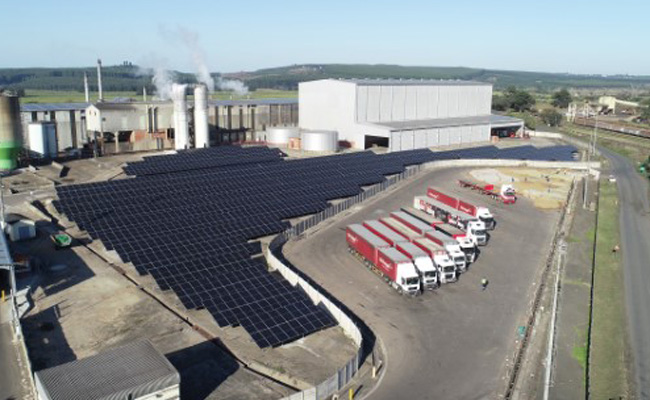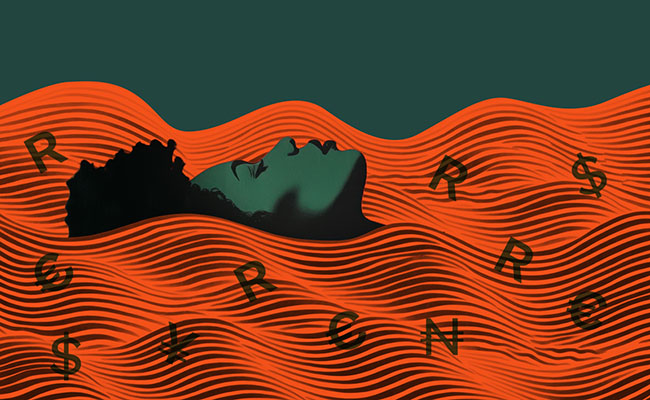From goings-on in politics to info drops in the economic world, we’ve got you covered on what to expect this week.
Politics
Freight rail reform
This week, Cyril Ramaphosa’s administration moves into a critical phase of its infrastructure reform agenda, as 11 private companies begin negotiations with Transnet for access to 41 routes and six corridors across South Africa. Companies handling coal, iron ore, manganese, sugar and fuel are expected to begin formal talks with Transnet on fees, scheduling and capacity allocation, with licences of up to 10 years on offer once requirements are met.
The reform marks the first concrete step to end Transnet’s monopoly and tackle bottlenecks that have hurt coal and iron-ore exports. Transport minister Barbara Creecy has said private operators could add 20Mt of freight annually from 2026/27, helping to meet the state’s 250Mt rail target by 2029.
This week is likely to test how quickly the reform can shift from policy to practice; private operators will want early clarity on timelines. The government will need to balance investor confidence with unions and labour concerns as it tries to effect infrastructure recovery with a logistics overhaul.
Political party funding regulations
The new Political Party Funding Act, signed by Ramaphosa on August 18, looks set to remain on the agenda this week, as fallout continues from the Western Cape High Court ruling on August 22, which dismissed a challenge by My Vote Counts (MVC). The changes, which double the annual donation cap to R30m and the disclosure threshold to R200,000, were upheld on the weekend and will shape how parties raise and report funds heading into the 2026 local government elections.
The Electoral Commission of South Africa will begin rolling out compliance guidance, with enforcement plans expected to feature in committee discussions. Opposition parties are expected to press for stricter disclosure thresholds, while governing parties will move quickly to adjust their fundraising playbooks. Critics argue the changes roll back transparency and entrench donor secrecy. MVC has promised to continue legal and advocacy pressure.
Manamela on the clock
Recently appointed higher education and training minister Buti Manamela has been given until Tuesday by parliament’s higher education portfolio committee to explain his controversial appointment of certain sector education and training authority (Seta) administrators. The questionable appointments echo those that led to the ultimate firing of his predecessor, Nobuhle Nkabane.
The portfolio committee wants Manamela to explain the process that led to the Local Government Seta, Services Seta and Construction Education and Training Authority all being placed under administration. The appointment of three new administrators for the affected Setas has been criticised as unlawful.
The portfolio committee will review Manamela’s explanation before deciding whether to summon him for an appearance.
Economics
Producer price inflation
On Thursday August 29 at 11.30am, Stats SA releases July’s producer price inflation, a key indicator of pipeline cost pressures. Consensus points to a sharp rise to 1.5% year on year, from 0.6% in June. Food products and beverages will be the biggest drivers, with meat prices still under pressure from the recent foot-and-mouth outbreak, while base effects lift other food categories.
By contrast, prices for petroleum, chemicals and plastics are set to remain deflationary, though the contraction is expected to narrow to -1.8% from -4.7% as fuel prices rose in July (petrol 2.4%, diesel 3.4%) on higher oil prices and a weaker rand. The print will be watched for any implications on inflation expectations as we head into the fourth quarter.
Credit and money supply
On Friday at 8am, attention shifts to the Reserve Bank’s release of July’s Private Sector Credit Extension (PSCE) and M3 money supply.
PSCE is expected to climb to 5.5% year on year from 5% in May and June. Corporate loans are tipped to reach 6.1% year on year, reflecting base effects more than new investment appetite, while household credit should edge to 3.3%, subtly improving with low borrowing costs.
M3 money supply is expected to remain broadly steady compared with June’s 7.3% year-on-year print, with liquidity available, but not expanding. Markets will read the release as a proxy for confidence, with households still cautious and corporates hesitant to invest. A disappointing readout will reinforce fears that caution, not cash, is restricting domestic demand.
Trade balance
Later on Friday, the South African Revenue Service will release the trade balance figures for July, which are likely to show a narrowing surplus, nearer R26.1bn, down from R27.9bn in June, as imports advanced faster than exports.
Imports continue to benefit from favourable local demand conditions, while export performance may also have edged up slightly, buoyed by strong gold prices and a good deal of US pre-emptive purchases ahead of the August tariff regime (agriculture exports to the US climbed 26% in the three months through June). Broader global demand, however, remains soft. The drop will hint at whether import strength signals domestic recovery or export vulnerabilities and, crucially, whether South Africa can maintain a health surplus through to year-end.

This article is published courtesy of The South Africa Brief, a political newsletter published on Substack which is a collaboration between Paul Berkowitz and Jonathan Moakes. It provides analysis and insight into the new, uncertain era of South African politics heralded by the 2024 general election. Including a specific focus on municipal politics, it will provide full analysis in the run-up to next year’s municipal polls.
Top image: Rawpixel/Currency collage.
Sign up to Currency’s weekly newsletters to receive your own bulletin of weekday news and weekend treats. Register here.











